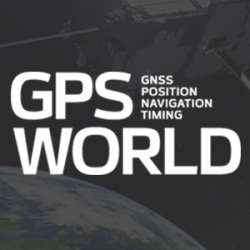
Arianespace Soyuz Begins Integration for March 27 Galileo Launch
March 5, 2015
The Soyuz launcher for Arianespace’s upcoming mission with two European Galileo navigation satellites is taking shape at the Spaceport […]
Read More

The Soyuz launcher for Arianespace’s upcoming mission with two European Galileo navigation satellites is taking shape at the Spaceport […]

The third and fourth Galileo Full Operational Capability (FOC) satellites are a confirmed “fit” for their Arianespace Soyuz […]

Galileo, that’s who! For dogged determination and persistent pushing-forwardness in the face of adversity, obstacles, and the occasional […]

The cause of two Galileo satellites being released into the wrong orbit August 22 can be traced to […]

The launcher for Arianespace’s next Soyuz mission from the Spaceport in French Guiana is completing its initial checkout for a flight in the second half of 2012, which will carry another two spacecraft for Europe’s Galileo satellite navigation constellation, according to Arianespace. During activity at the Spaceport’s Soyuz Launcher Integration Building — known by its Russian “MIK” designation — the vehicle’s four first-stage strap-on boosters have been mated with the Block A core second stage, followed by integration of the Block I third stage.

The first pair of satellites for Europe’s Galileo global navigation satellite system has been lofted into orbit by the first Russian Soyuz vehicle ever launched from Europe’s Spaceport in French Guiana in a milestone mission, reports the European Space Agency. The Soyuz VS01 flight, operated by Arianespace, started with liftoff from the new launch complex in French Guiana at 10:30 GMT on October 21. All of the Soyuz stages performed as expected and the Fregat-MT upper stage released the Galileo satellites into their target orbit at 23,222 km altitude, 3 hours 49 minutes after liftoff.

The first Soyuz to take off from Europe’s Spaceport in French Guiana was moved to the launch pad October 14. The rocket that will carry the first two Galileo navigation satellites into orbit is on track for liftoff on October 20, reports the European Space Agency (ESA). Launch of the first two Galileo IOV satellites is scheduled for October 20 at 10:34:28 UTC.

The first two Galileo navigation satellites are both now fueled and checked for their launch by Soyuz from French Guiana on October 20, reports the European Space Agency. Also, ESA has set up a special website in preparation for the launch.
Follow Us